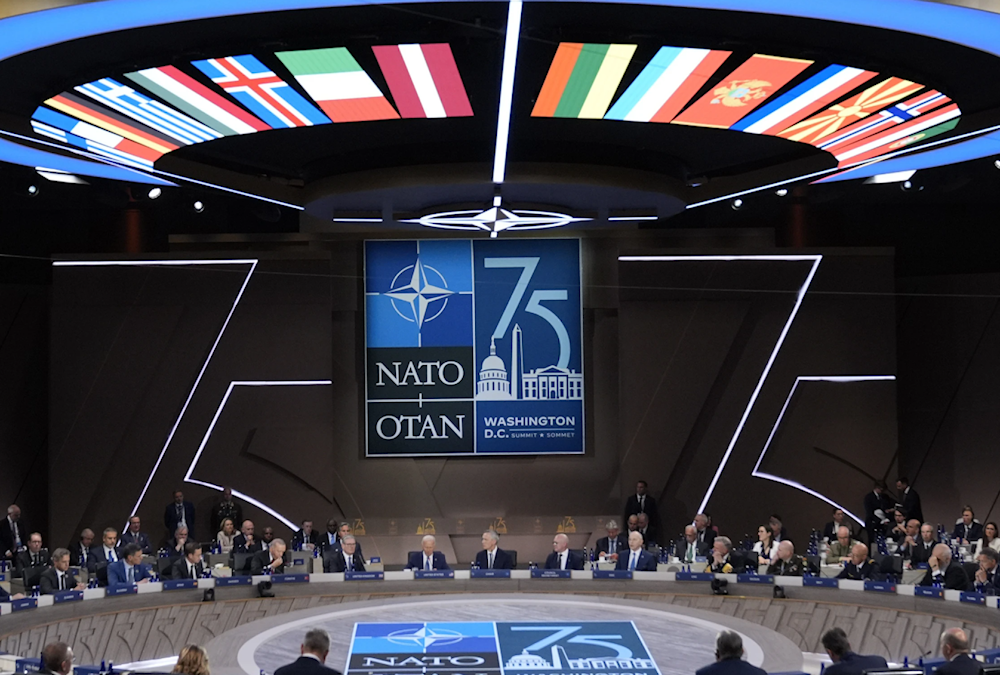Erdogan warns against direct confrontation between NATO, Russia
Russian news reports cite Peskov as saying that NATO was now "fully involved in the conflict over Ukraine."
-

US President Joe Biden speaks during the opening session of the NATO Summit, on July 10, 2024. (AP)
Turkish President Recep Tayyip Erdogan stated Thursday that the idea of a direct confrontation between Russia and NATO was "worrying", Anadolu news agency reported.
Erdogan's remarks came as NATO leaders huddled in Washington, and Kremlin spokesperson Dmitry Peskov said Russia was contemplating "response measures" to counter the alliance's "very serious threat."
"The possibility of a direct conflict between NATO and Russia is undoubtedly worrying," Erdogan stated, adding that "any steps that could lead to this outcome should be consciously avoided."
On Wednesday, NATO issued a joint Washington Summit Declaration detailing the alliance's initiatives to further isolate Russia, strengthen security on its eastern flank, enhance security assistance for Ukraine, and assert that Ukraine is on an "irreversible path" to joining NATO, among other measures.
Russian news reports cited Peskov stating that NATO was now "fully involved in the conflict over Ukraine."
Ankara has transferred drones to Ukraine while shying away from Western-led sanctions on Moscow.
When Erdogan met with President Volodymyr Zelensky last year, he stated that Ukraine "undoubtedly" deserved NATO membership while his government attempted to mediate a peace accord between Russia and Ukraine.
On Thursday, Erdogan also downplayed the role of the Shanghai Cooperation Organization (SCO), a regional bloc advocated by Moscow and Beijing as a counterbalance to US power.
"We do not think that the Shanghai Cooperation Organisation is an alternative to NATO," he stated. Turkey has been a SCO discussion partner since 2012, and Erdogan, who attended the July meeting, has previously expressed a desire for full membership.
Before heading to Washington on Tuesday, Erdogan advocated for increased NATO involvement in the war on Gaza, reiterating on Thursday his fears about the war expanding.
"Israel's threats and attempts to spread the conflict must come to an end," he told reporters, adding that "otherwise, our region will face the risk of deeper conflicts and even a war."

 2 Min Read
2 Min Read









